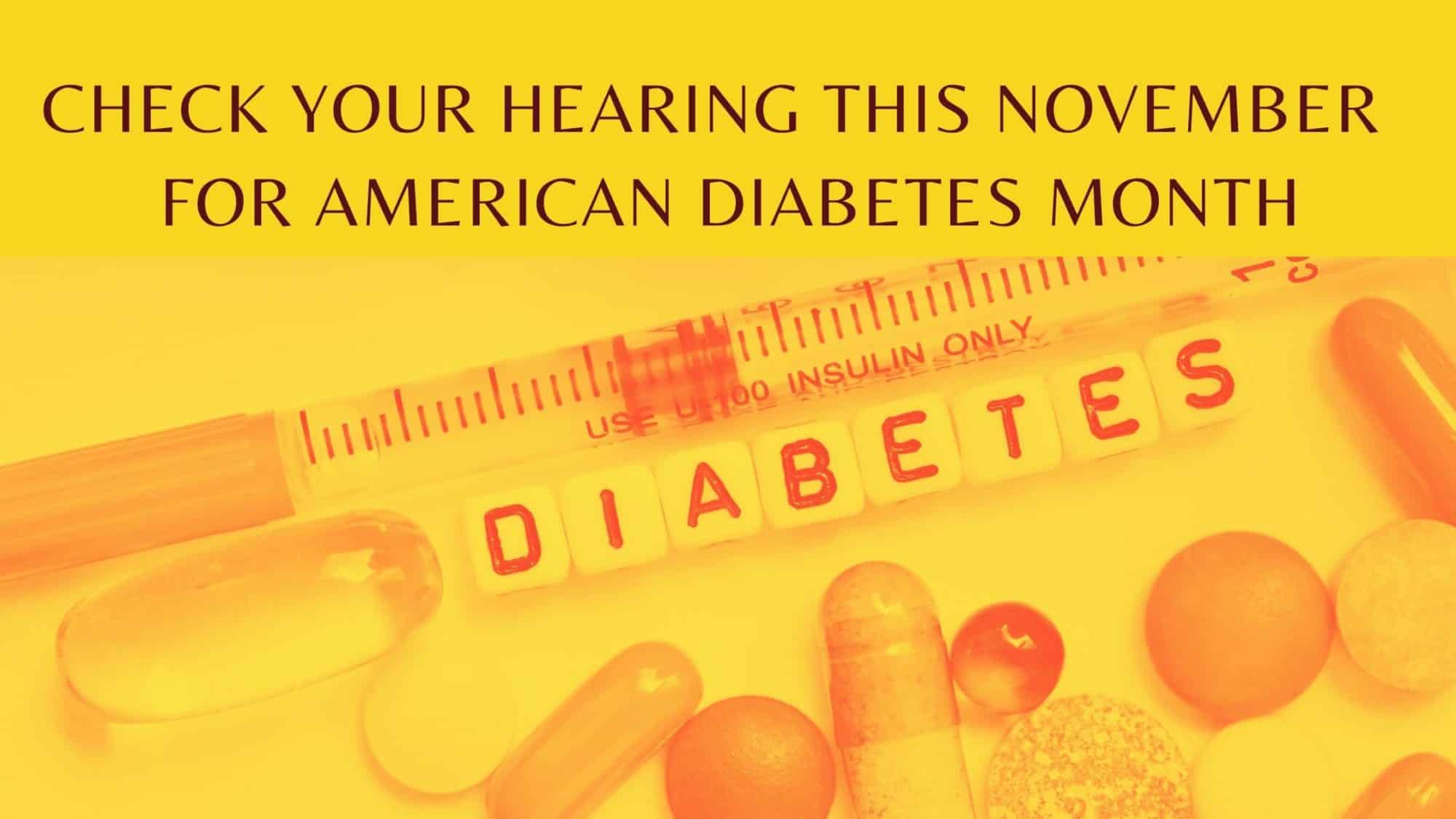- The Connection Between Hearing Loss and Dementia - July 30, 2024
- The Advantages of Rechargeable Hearing Aids - July 16, 2024
- How to Enjoy Music Festivals While Protecting Your Hearing - July 3, 2024
Of the estimated 34 million people with diabetes in the US, the CDC estimates that 1 in 4 four adults living with diabetes don’t even know they have it. This is alarming because when diabetes goes undiagnosed, undetected, or ignored, it can quickly escalate into serious symptoms threatening the quality of life and health. In fact for those living with diabetes the risk of mortality increases by 50 percent. This and every November is National Diabetes Month – a campaign that aims to educate and advocate for screening a treatment of this serious condition. The CDC projects that if current trends go as they have, in the United States, 1 in 3 people will have Type 2 diabetes by 2050. This month we stress the importance of dealing with your diabetes, and as hearing health care specialists, we stress the importance of your hearing, in connection to diabetes.
How is hearing loss connected?
Hearing loss can occur for many reasons. For instance, loud sound over a lifetime or a sudden high-volume blast can cause permanent hearing loss. In other cases, a blow to the head, exposure to certain chemicals, infection or advanced age can cause hearing loss. However, researchers are finding that based on a large meta-analysis of several studies tracking the connection between diabetes and hearing loss that addressing hearing issues should be part of treating diabetes as well. The massive meta-analysis was published in 2012 in the Journal of Clinical Endocrinology & Metabolism, tracking results from 13 studies involving more than 20,000 participants. In conclusion, the study concluded that diabetics were 2.15 times more likely to have hearing loss than those without the disease, across age groups.
Understanding Diabetes
To understand how diabetes affects your hearing, it’s important to understand the nature of the condition. · The most common type of diabetes is type 2 in which your body produces insulin but does not use it as it should. Insulin is a hormone produced in the pancreas and allows for glucose (blood sugar) to move into the body’s cells to provide energy. When the cells don’t receive enough glucose, they can become damaged and this damage can extend into heart disease, kidney failure, nerve damage, blindness, amputation, and even hearing loss.
Detecting Diabetes Early
Symptoms of type 2 diabetes usually appear gradually over the course of several years, and first manifest as prediabetes. Prediabetes occurs when blood sugar levels are high but not so high that they classify as full-blown diabetes. Knowing the risk factors and symptoms can help you spot it before it progresses into a condition that can affect your total health and hearing. It is a good idea to have your blood sugar levels tested every three years, once you reach the age of 45. Other warning signs include a frequent need to urinate, increased thirst, hunger, dry skin, or blurry vision.
Diabetes and the Hearing Loss Connection
When diabetes goes unregulated it can damage cells and nerves throughout the body such as hands, feet, eyes, and kidneys. Your ears are no exception. While you collect sound with your ears you interpret these sounds with your brain. Your ears deliver sound to your brain, via tiny hair-like cells called stereocilia which are reliant on a healthy supply of oxygenated blood. Experts believe that when diabetes becomes severe it can damage the stereocilia, leaving patients with permanent hearing loss.
Managing Diabetes
Managing your diabetes includes managing your hearing health. Aside from keeping track of blood sugar levels daily and taking prescribed medications, it is recommended that patients exercise at least three times a week for 30 minutes or more. Another important aspect of managing diabetes is prioritizing a healthy diet, rich in vegetables and whole foods while reducing processed sugars. National diabetes month is an opportunity to educate people on the signs and symptoms of prediabetes and diabetes, as well as schedule a hearing test. If you have been diagnosed recently with this condition, it’s a good time to monitor your hearing health now!

